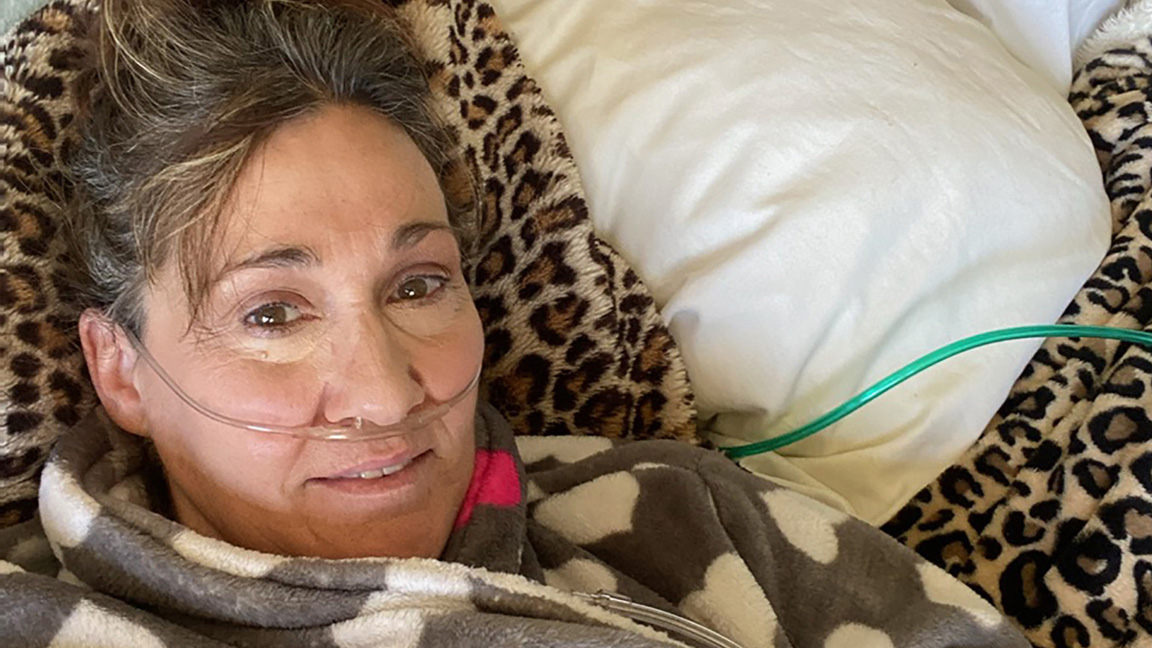
SOUTHERN COLORADO — These days, Harriet Robinson’s anxiety pills are in a zippered canvas case on the stand next to her bed, an increasingly faint reminder of her three-year effort to ensure the peace she needs to get a good night’s rest. She’s down to just one of the small, round pills every other day.
“In three weeks, I will be finished with them,” Robinson said from her king-sized bed, decorated with leopard-print blankets.
An actress and satirical writer, Robinson, 60, knows she could likely write a story about her odyssey with sleep. The question is, would it be a comedy? Or an anxiety-filled tragedy?
It all started three years ago, when an allergic reaction to a medication her doctor gave her for a mild, intermittent health issue sent her to an emergency room in southern Colorado.
“I couldn’t breathe, was lightheaded and broke out into a rash,” Robinson said. “I had to call 911.”
An E.R. doctor prescribed a steroid to stop the reaction. But when Robinson stopped taking the steroid, her heart began to race wildly. She was diagnosed with tachycardia, a condition defined by episodes in which the heart beats faster than 100 beats per minute. Robinson’s resting heart rate escalated as high as 136.
“It was very scary—I felt helpless and out of control,” Robinson said.
The Colorado resident started staying up at night, Googling her symptoms, wondering if she actually had a disease that was going to kill her. In the midst of that, Robinson confronted the inevitability of her death. And her anxiety skyrocketed.
“I couldn’t get through to people how much in a panic I was,” she said. “In truth, it was all about the idea of death and that I was afraid my life was threatened and that I was going to die.”
The fear led her down a never-ending rabbit hole of questions.
“What am I afraid of about death?”
“Is it the end of everything?”
“Is there an afterlife after this or not?”
Robinson began going to therapy and studying with a woman who had had a near-death experience and was teaching an online class That helped. What didn’t help: the doctors who kept telling Robinson that her problems were all in her head.
“And I kept telling them: ‘But I am mentally in distress because my heart is racing.’ It became a question of which came first—the chicken or the egg.”
Physical healing began in 2017, with prescribed sleeping medication, Robinson says. After five or six weeks of living in a sleepless state that caused her to feel “hyper-aware of everything,” Robinson’s mind was finally able to relax enough to slip into unconsciousness.
A substantial problem, however remained: She would wake up with the same fear and anxiety she’d had after the original trip to the emergency room. And as those symptoms continued, another symptom formed—depression. For that, Robinson relied on her husband’s steady stream of pep talks, an anti-anxiety prescription, and continued therapy.
At that point, sleep—even when forced through a medication—became a refuge.
“I was like waiting out the agony of the day, of being awake and being alive and feeling as horrible as I did. I would always ask myself: ‘How long do I have to wait until I can return to sleep?’“
Weaning herself off the sleeping pills caused new bouts of sleeplessness, as Robinson worried that her body wouldn’t be able to fall asleep without them. Still, after nine months, she was done with them altogether. Now she’s approaching the end of the anxiety medication as well.
Along the way, she has learned a lot about herself—namely how much her body needs sleep. Now she winds down with mindfulness meditations, calming music, a soothing view of the Rampart mountain range, and the comforting snore of her Shih Tzu, Josephine (“Jo Jo,” for short). She breathes a soft flow of oxygen through plastic tubing at night, to help her cope with her residual anxiety, as well as the 8,500-foot altitude at which she lives.
“I am so grateful to be able to sleep now,” Robinson said. “Sleep is a basic human need that I no longer take for granted.”
“How Did You Sleep Last Night?” is an ongoing series.
